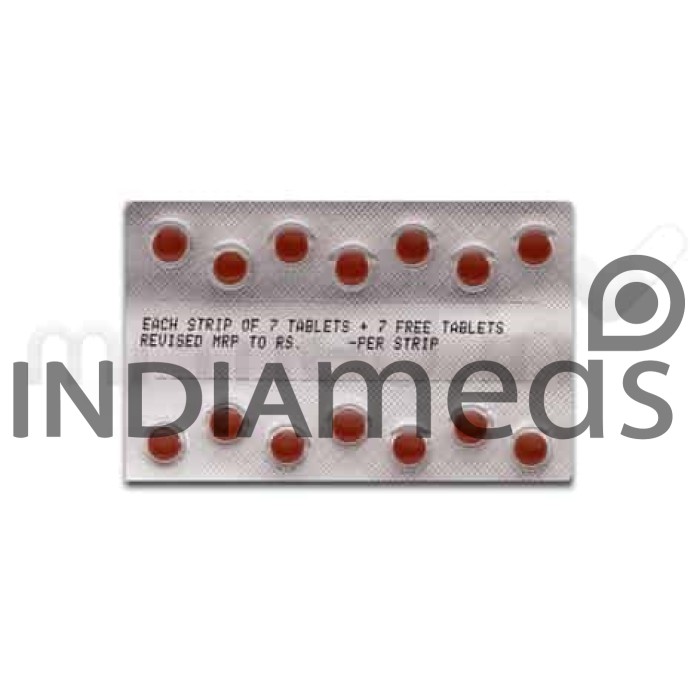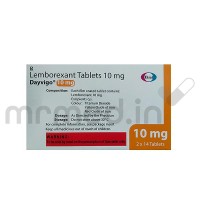Briviact 100mg Tablet is an antiepileptic medication that belongs to a class of drugs known as synaptic vesicles 2 A (SV2A) protein ligands containing the active ingredient Brivaracetam. It is used to treat partial-onset seizures in patients with epilepsy. Partial-onset seizures, also known as focal seizures, are a type of epileptic seizure that begins in a specific area or focus within one hemisphere (side) of the brain. These seizures are caused by their localized onset, meaning they originate in a specific region of the brain rather than affecting the entire brain simultaneously.
This drug is contraindicated in individuals with known hypersensitivity or allergy to Briviact 100mg Tablet, other similar chemical compounds like levetiracetam or piracetam, or any of the other ingredients. You should not take this medication. If you have liver problems, it's important to inform your doctor before taking this medicine. Depending on the severity of your liver condition, your doctor may need to adjust your dosage or closely monitor your liver function during treatment. Children who are under 2 years of age should not take this drug.
Individuals taking anti-epileptic medicines should be aware of the possibility of experiencing thoughts of harming or killing themselves. While this is a rare side effect, being careful is essential. You should contact your physician immediately if you ever have thoughts of harming or killing yourself while taking this drug. This is important for your safety and well-being. Briviact 100mg Tablet is not recommended during pregnancy because its effects on pregnancy and the unborn baby are not well-known. Pregnant women should consult their doctor for alternative treatments. Breastfeeding is not advised in patients taking this drug because the medicine passes into the breast milk in small amounts and may harm your baby. Do not breastfeed during the treatment.
Therapeutic Effects of Briviact 100mg Tablet
Pregnancy
Briviact 100mg Tablet is not recommended during pregnancy because its effects on pregnancy and the unborn baby are not well-known. Pregnant women should consult their doctor for alternative treatments.
Breast Feeding
Breastfeeding is not recommended in patients taking Briviact 100mg Tablet because the medicine passes into the breast milk in small amounts and may harm your baby. Do not breastfeed during the treatment.
Lungs
It is unknown whether Briviact 100mg Tablet can be used in patients with lung diseases. Consult your doctor for more advice.
Liver
Briviact 100mg Tablet should be used with caution in severe liver disease patients. A dose adjustment is required based on the condition. Inform your physician if you have any liver problems before starting the treatment.
Alcohol
It is unsafe to consume alcohol while taking Briviact 100mg Tablet. It may reduce the drug's effectiveness and may lead to increased side effects.
Driving
Briviact 100mg Tablet may cause drowsiness, dizziness, or tiredness, particularly at the beginning of treatment or after a dose increase. Therefore, individuals should avoid activities that require alertness, such as driving, cycling, or operating machinery.
Serious
- Depression
- Anxiety
Common
- Flu
- Feeling very tired (Fatigue)
- Dizziness
- Vertigo
- Feeling sick
- Constipation
- Depression
- Anxiety
- Not being able to sleep (Insomnia)
- Irritability
- Infections of the nose and throat
- Cough
- Decreased appetite
Briviact 100mg Tablet is indicated for the treatment of partial-onset seizures in patients with epilepsy. It is used as an add-on therapy for patients who have not achieved adequate seizure control with other antiepileptic medications.
Briviact 100mg Tablet works by binding to a specific site on synaptic vesicle protein 2A (SV2A) in the brain. This action is thought to modulate the release of neurotransmitters, which helps to reduce excessive electrical activity and prevent seizures from occurring.
Briviact 100mg Tablet is indicated as an adjunctive therapy, meaning it is used in combination with other antiepileptic medications to manage epilepsy and focal seizures. It is not used as a monotherapy (single-drug treatment) for epilepsy. The choice of antiepileptic regimen should be managed to the individual patient's needs and medical condition.
Common side effects of Briviact 100mg Tablet may include drowsiness, dizziness, headache, nausea, and irritability. If any of these side effects bothers you, inform your physician immediately.
If you miss a dose of Briviact 100mg Tablet, take it as soon as you remember. However, if it's close to the time for your next scheduled dose, skip the missed dose and continue with your regular dosing schedule. Never take a double dose to make up for a missed one.
Molecule name: Brivaracetam | Therapeutic class: Antiepileptic |
Pharmacological class: Synaptic vescicle 2 A (SV2A) protein ligands | Indications: Treatment of epilepsy |








